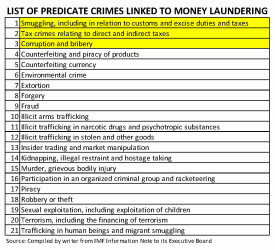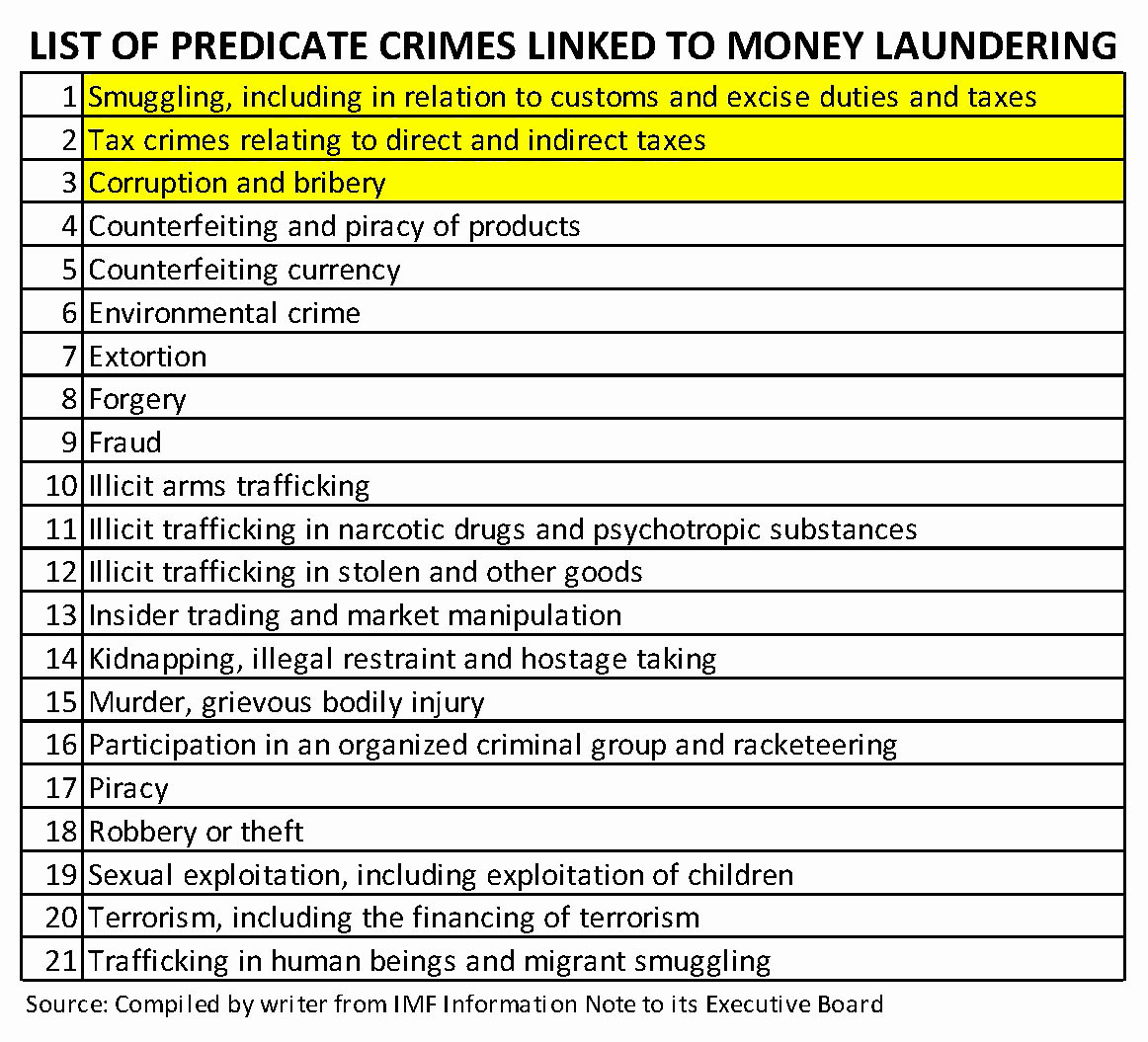(Conclusion)
Due diligence
 In the first part of this article, an effort was made to discuss some of the things that often lead to charges of non-compliance with globally accepted anti-money laundering and countering the financing of terrorism standards. The indication from that information was that in doing business, investors cannot treat financial risk as an exogenous variable which can be controlled through, for example, third party contracts with insurance companies. Businesses must treat financial risk as an endogenous variable that has to be solved simultaneously with revenue generation. The acceptance of money as a deposit or payment must be accompanied with a readiness to inquire and have disclosure about the source of the money. In other words, due diligence can only serve as a defence against accusations of money laundering if it is practiced. Due diligence becomes increasingly important when the transaction involves the cross-border movement of money where any number of the following crimes could be involved.
In the first part of this article, an effort was made to discuss some of the things that often lead to charges of non-compliance with globally accepted anti-money laundering and countering the financing of terrorism standards. The indication from that information was that in doing business, investors cannot treat financial risk as an exogenous variable which can be controlled through, for example, third party contracts with insurance companies. Businesses must treat financial risk as an endogenous variable that has to be solved simultaneously with revenue generation. The acceptance of money as a deposit or payment must be accompanied with a readiness to inquire and have disclosure about the source of the money. In other words, due diligence can only serve as a defence against accusations of money laundering if it is practiced. Due diligence becomes increasingly important when the transaction involves the cross-border movement of money where any number of the following crimes could be involved.

Cross-border movement
Money moves across borders for a variety of reasons. Money crosses borders to satisfy trade transactions. It crosses borders to satisfy investment transactions. It crosses borders to meet personal or family needs. All those purposes might be legitimate. But money crosses borders also to

